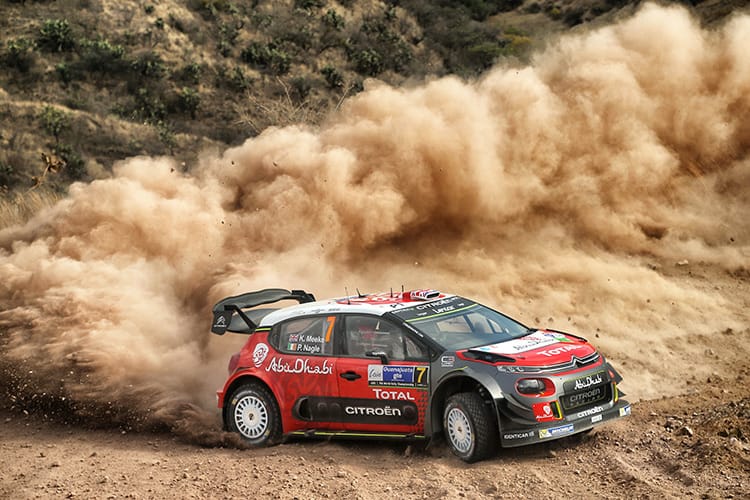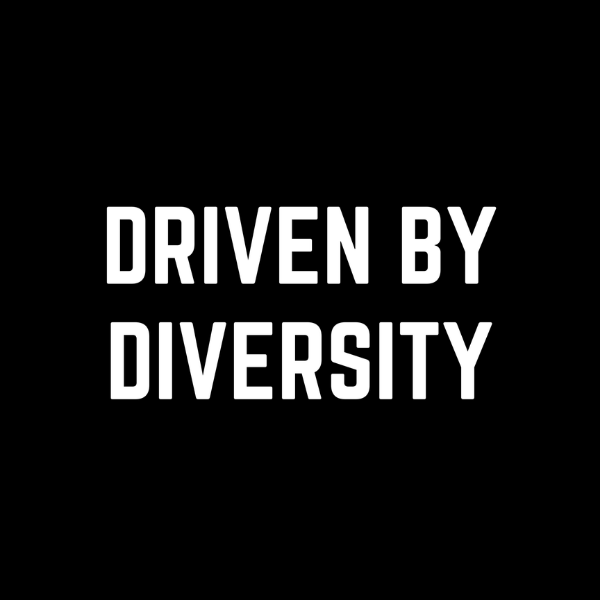Kris Meeke’s sudden departure from the Citroen fold has sent ripples through not just the close-knit world of the FIA World Rally Championship, but also that of British sport, with even the mainstream media picking up the story. It’s a sad fact that World Rallying rarely makes the tabloids unless something like this happens, a clear measure of just how unexpected the announcement was. Meeke himself was seemingly unaware that the axe was about to fall, certainly if his social media posts minutes beforehand were anything to go by!
I feel that there are a number of points worthy of consideration in the wake of the news, many of them concerning Citroen’s conduct, its commitment to the WRC, and both it and Meeke’s respective futures. I’m a self-confessed Meeke fan and apologist, but I’ve tried hard to be impartial – or at least as impartial as it’s possible to be given the circumstances.
Citroen’s press release, the one launched in the dying minutes of the working day, inferred that it was dropping Meeke and Nagle for their safety. Pierre Budar‘s quote was particularly telling in this regard;
“This wasn’t an easy decision to make because it effects a driver and a co-driver, but it is largely founded on safety issues which come under my preoccupations as Team Principal. We have consequently chosen to make this decision as a preventive measure.”
Now of course no one wants to see a driver or co-driver injured (or worse) behind the wheel of a WRC car, least of all Citroen – it’s only involved to shift cars and to bolster its sporting credentials. That much is obvious, and I am in no way inferring that Citroen doesn’t care deeply for the health and continued wellbeing of its drivers.

Credit: Citroen Racing
Still, something doesn’t stand up, not fully. If the C3 is so fundamentally tricky (or indeed dangerous) to drive now, why did Yves Matton allow Meeke and Nagle to drive it throughout 2017, when it was considerably less developed and even harder to master? Safety is of paramount concern and Citroen understands this, but if it was the team’s overriding concern then surely something should have been done long before now, when the car has become a less vicious prospect. Meeke himself alluded to this on Friday morning immediately after the opening leg of Portuguese stages.
That Citroen have opted to swing the axe at this point in time, midway through the season and in a very public manner, would imply that its problem is actually with Meeke’s driving, and that it has run out of patience, tired of the poor PR and the glut of bent bodywork. That’s their prerogative; it’s their car, their programme and their money at the end of the day. (Even if it’s generally agreed that they went about it in a really cack-handed manner)
What isn’t fair is making Meeke the scapegoat for the C3’s clear failings. It’s important to acknowledge Meeke’s role in the development of the car of course, that’s what 2016 was supposedly all about, but it has been patently obvious that the C3’s fundamental issues have yet to be completely resolved. It remains the weakest of the current crop of WRC cars by some measure, tricky to dial in and unwieldy on gravel, the surface which largely dominates the championship. The car’s twitchy, unforgiving character forces its drivers to put it all on the line, all of the time if they want to score podiums or wins, a situation which can only end badly.

Credit: Citroen Racing
It’s also worth looking back at Meeke’s 5 WRC wins, if only to see if they had any hint of the ‘win it or bin it’ ethos he’s since become associated with, particularly those netted in the old, pre-2017 WRC cars. His performances in the DS3 were seldom anything less than mature, with Finland 2016 being a case in point. Yes, he did have a favourable road position, but you can’t deny that winning one of the most specialised events on the WRC calendar, a rally still known for being dominated by locals and Frenchmen called Seb, isn’t a clear demonstration of a prodigal talent, and a well rounded one at that. Meeke’s drives to victory in Argentina 2015 and Portugal 2016 were also notable for being measured, cerebral affairs, not the kind of performances we’ve come to associate with him since the arrival of the C3 WRC.
Looking ahead, why has Citroen made this decision now, midway through the season and with no clear Meeke replacement in the works? Breen is no doubt a future star and could well challenge for wins if the car and the situation are favourable, but he’s hardly a proven winner like Meeke. It’s a similar story with Ostberg, whose deep pockets are doubtless a handy thing for Citroen to have on side considering their modest budget, but (with the best will in the world) is unlikely to become a regular winner and a title contender.
There’s Loeb of course, but he’s been open in his refusal to be tied into a full season of competition in 2019 and was on record as saying so less than a month ago. He could have changed his mind (and the PR benefits of having ‘Seb 1’ back in a French car are plain to see), but I doubt it; why risk tainting your legacy by trying to add yet another title in a car that’s recalcitrant at best, downright scary at worst? I doubt it’s a prospect he’d deem worth forsaking his holiday for.
One of the most intriguing theories regarding Citroen’s shock announcement is that it’s a means to an end, a way for the company to beat a hasty retreat from the WRC while saving face. We know that Citroen’s budget is smaller than that of Toyota and Hyundai and also that its commitment to the sport might not be as cast-iron as it once was, particularly given the C3 WRC’s very public development trauma, something that’s served to taint its otherwise stellar WRC record.

Credit: Citroen Racing
So, could Meeke’s sacking be a precursor to a wound down 2019 programme and total withdrawal at the end of the season? It’s a possibility, particularly when you recall Peugeot’s ongoing Rallycross programme, the PSA sibling now committed to that motorsport’s plug-in future. This is pure speculation of course, but it’s something I feel is worth bearing in mind as the story plays out over next few weeks and months. It’s certainly true that far less credible scenarios have come to pass in the WRC’s recent past!
It’s hard to see this very public sacking as being career de-railing for Meeke, perhaps even career terminating. While certainly not ‘over the hill,’ at 38 Meeke is in the upper age bracket as far as the current WRC crop is concerned, and with an ever rising tide of ‘up and coming’ youngsters snapping at his race boots, some in Citroen overalls, some without.
Meeke’s previous associations with M-Sport weren’t all positive, and in any case, Malcolm Wilson appears to have committed his limited funds to the development of a solid number two driver, a youngster promoted from within. Recent rumblings from Toyota and Hyundai have been more positive however, with news today that both outfits are interested in Meeke, at least in theory. Of course it remains to be seen whether or not this will be enough to convince Mäkinen or Nandan to put pen to paper.
There’s also a ‘third way’ potentially on the table, albeit one well trodden by a number of WRC refugees in recent years – World Rallycross. The fastest growing motorsport in the world would doubtless suit Meeke’s fearless brand of driving, he’d adapt very well and would probably become a firm fan favourite within months, but RX’s gain would be at the WRC’s expense.
This isn’t to overlooked Meeke’s failings entirely. It’s clear that he will never be a points banking machine in the vein of Ogier or Loeb, but then those really are once in a generation talents. Meeke is, and always has been, a delightful throwback to a more innocent period in WRC history, a flawed genius with more than a hint of his one time mentor about him. On his day he’s all but unbeatable, perhaps the fastest driver currently competing at the top of the sport.
It’s just a shame that his day hasn’t come round often enough, and that the era of ‘heart-in-mouth’ drivers like Meeke and Latvala might well be drawing to a close.



